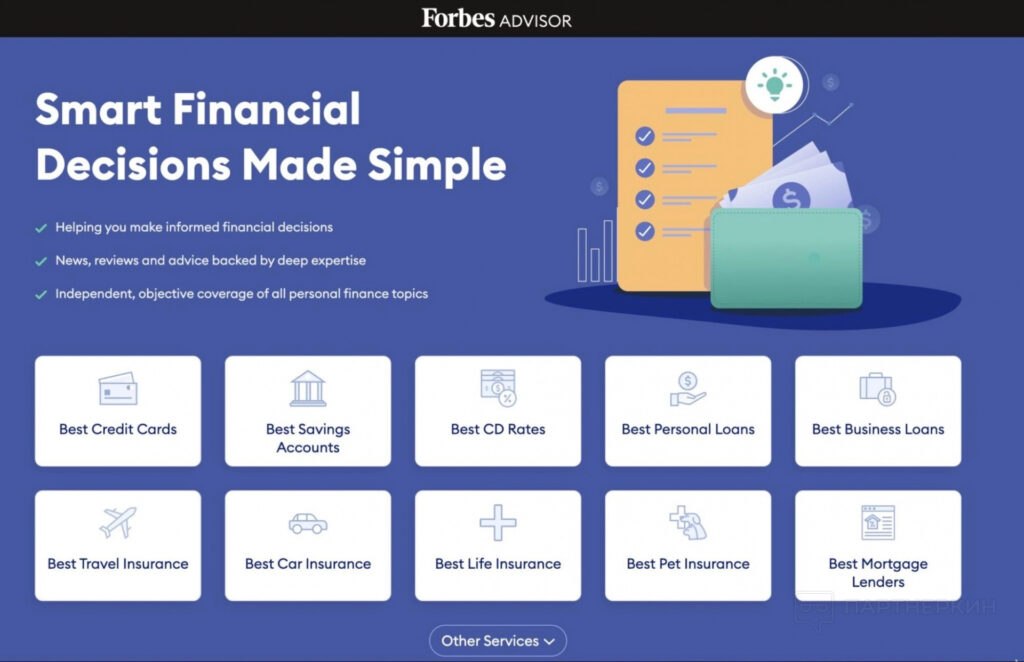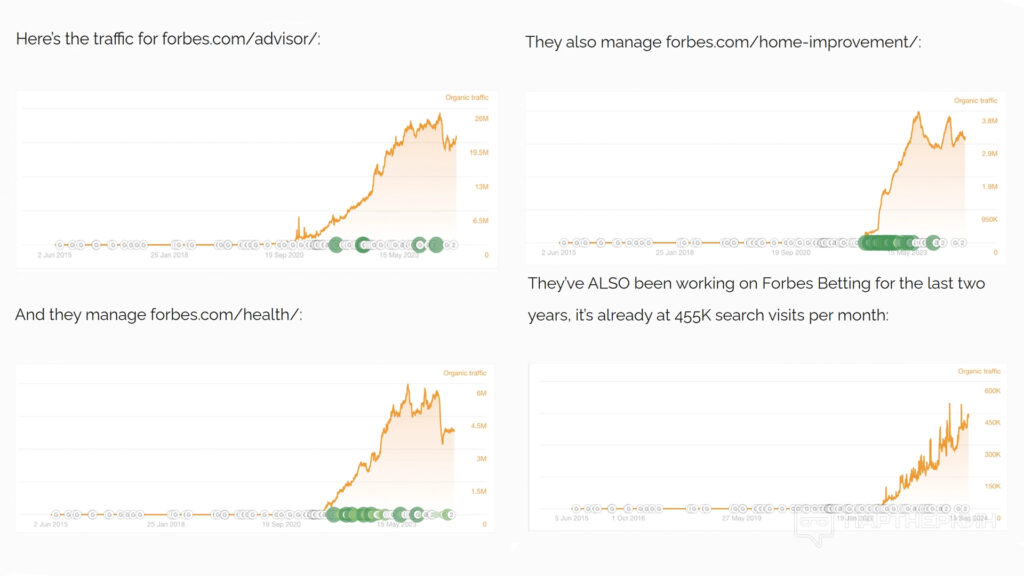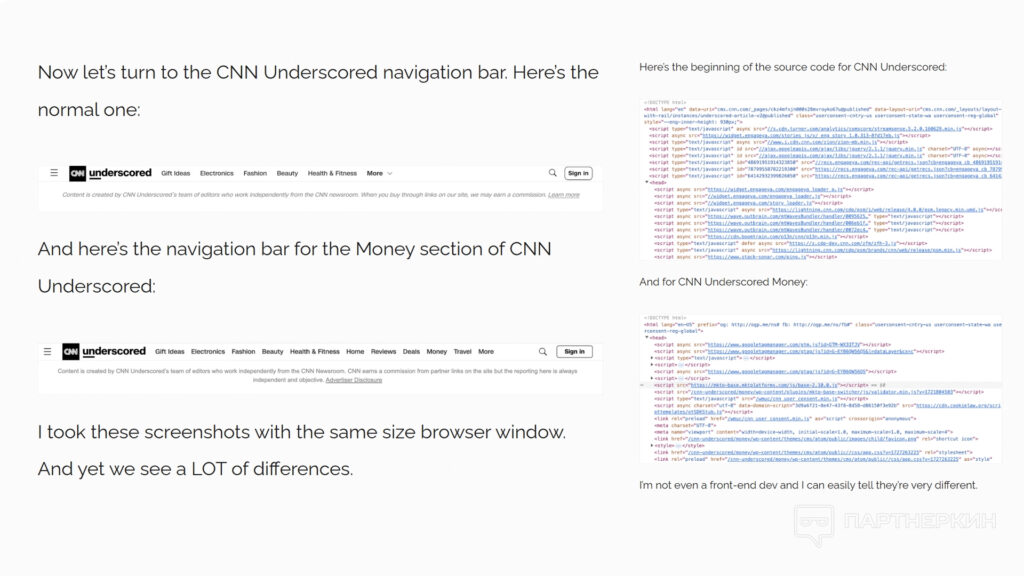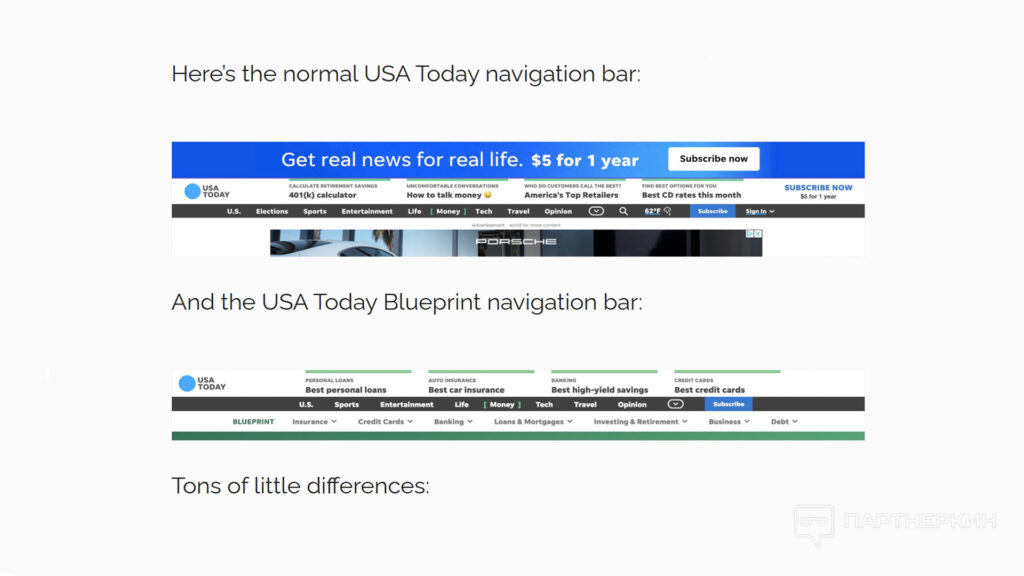Don't miss interesting news

Let’s see what Lars Lofgren (for convenience, hereinafter referred to as LL) found out about the backstage of Forbes affiliate pages and other major media during his investigation.
Forbes covers almost every possible query topic in the English-speaking segment of the Internet – from “the best pet insurance” and “how to get rid of cockroaches” to “the most effective CBD gummies”. This may seem somewhat uncharacteristic of a publication of this caliber. So, how come Forbes publishes articles on these not-so-core topics?
As LL found out, back in 2020, Forbes transferred the SEO part of its affiliate program business to another company. As a result, a new structure emerged – Forbes Advisor, which, although it retained the sounding name Forbes, actually became a separate company. It is this company that today manages several major sections of the Forbes website:
Initially, Forbes Advisor worked only in the B2B segment, dealing with financial materials, but eventually began to fully curate Forbes’ affiliate SEO activities. According to LL’s estimates, these sections of the site now generate about 27 million clicks per month, and this is only four years after their creation.
LL noted that Forbes Advisor doesn’t talk much about itself, trying not to draw attention to its activities. The blogger studied the company’s privacy policy and SEC documents and found an interesting detail: Forbes Advisor is just a public shell. The real company behind it is Forbes Marketplace.

LL claims that although Forbes owns 40% of Forbes Marketplace, it is actually the founders of this company who control its activities. The parent company has only one seat on the board of directors, and there is only one representative of Forbes in the company itself – it is the majority shareholder of Forbes Marketplace.
According to LL’s research, Forbes Marketplace was founded by three people, two of whom are mentioned on the “About the Team” page on their website. It turned out that one of the co-founders left the company due to a conflict, the details of which Lars found on LinkedIn. This former co-founder worked at Forbes back in 2009 and met SEO specialists with whom he founded Forbes Marketplace in 2019.

LL concluded that after that, Forbes lost control of Marketplace. The company’s founders, who no longer have any connection with Forbes, are now managing the company.
LL found in SEC documents that Forbes Marketplace earned $22 million from January to September 2021. And this is still at the stage of the company’s promotion. The blogger suggests that for the whole of 2021, their income was at least $29 million, even without taking into account additional factors such as commissions from advertisers. According to LL’s estimates, their traffic has now reached 27.7 million clicks per month, and he estimates that annual revenue could be between $300 million and $400 million.

LL calls Forbes Marketplace “the most successful example of parasitic SEO”, which is admirable. However, this is only the tip of the iceberg. In his subsequent investigations, he learns that Marketplace has infiltrated other major media outlets, including CNN and USA Today, in an effort to stay under the radar.
LL paid attention to the “Money” section on CNN’s affiliate site, CNN Underscored. He was surprised that all the employees of this section have the same corporate email, not related to CNN. It turned out that all the employees of the section are contractors, which is very strange for such a large company. When LL investigated the page’s code, it found confirmation: this is not part of the original CNN.

LL suggests that CNN has a similar deal with Marketplace to the one they had with Forbes, but has made a separate site for affiliate content.
LL also came across a similar situation with the Blueprint section of USA Today. As with CNN, he noticed slight differences in fonts and spacing, which suggested that it was a separate site. When he examined the page code, he found that most of Blueprint’s employees had email addresses with the subdomain “marketplace.co,” indicating a connection to Marketplace.

LL believes that Google does not pay attention to the violations committed by the Marketplace. According to Google’s policy, partners cannot publish materials related to another brand, but Marketplace still ranks at the top of the search results. LL believes that this is due to the weakness of Google’s algorithms, which favor large media companies. Marketplace used this situation to make money.
But recently, after LL’s article attracted widespread attention, Forbes Marketplace’s traffic has dropped significantly. This suggests that Google has finally started manually checking for violations, which may be the result of a conscious decision by the company.